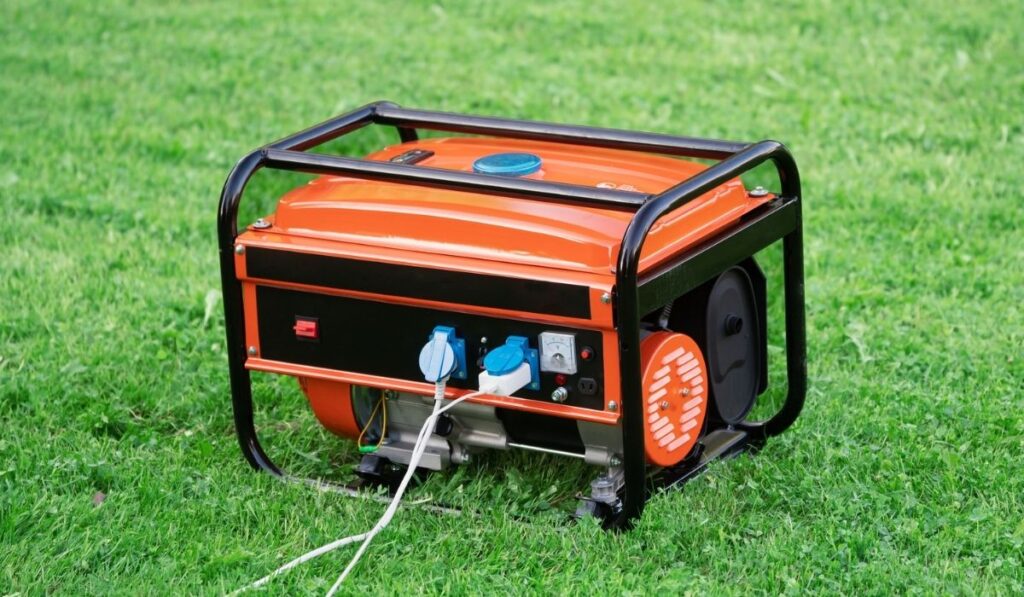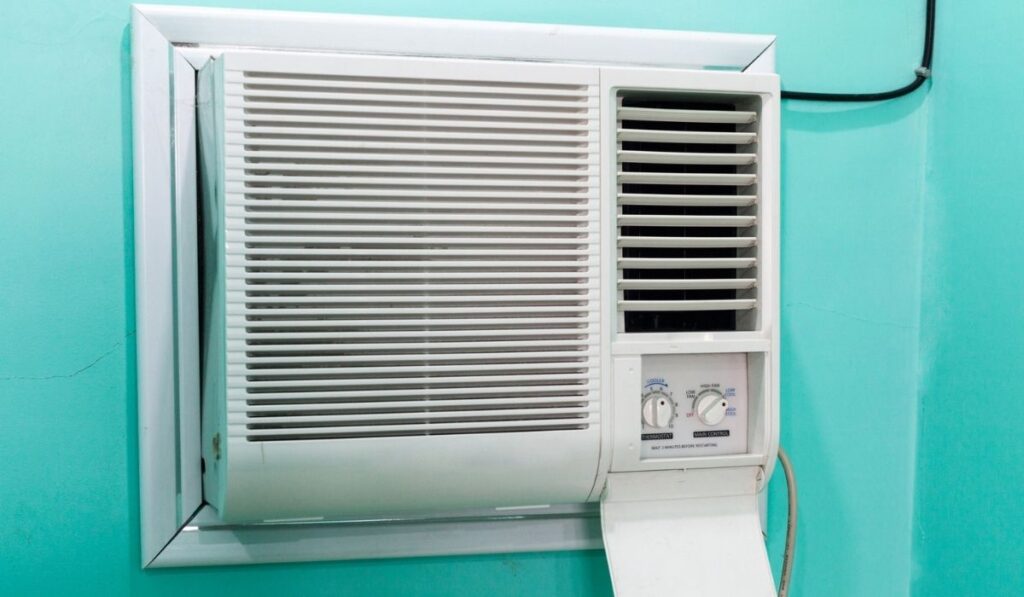Getting a generator that’s just right for your needs can be challenging, but taking the time to determine the best option is worthwhile since it will preserve your investments in the long term. There are several types of generators, and they differ in terms of loads, fuel consumption, number of stages, and other factors.
The size of the generator you need is determined by the amount of power (wattage) you need it to handle. The wattage required, in turn, depends on the quality and quantity of appliances you want to run. A generator rated around 1,200 to 2,000 watts is usually enough to run a small window AC unit.
Finding a generator that suits your needs can be pretty straightforward with a little arithmetic. The watt consumption of your window AC unit can be found in the buyer’s handbook or by using a motor load guide. Let’s take a closer look at how to make the best possible purchase.
Can You Run a Window AC Unit on a Generator?

Yes. A generator can power an air conditioner. However, your machine may be damaged if you connect an AC unit to an insufficiently strong generator. The wattage of each AC unit varies.
Wattage
Wattage is the most basic unit of measurement for calculating how much power a generator can handle. You’ll need to perform some basic arithmetic and planning if you want to buy a generator to power a window air conditioner and other equipment.
Window air conditioners have two-watt ratings: starting and running. Because amperage surges as the machine startup and the motor begin to turn, starting wattage is greater, as the motor needs more current to overcome inertia and starting friction.
The typical beginning wattage of a window unit is 2,200. However, as the machine runs, the wattage drops to somewhere around 1,500.
Generators
There are generators for almost any circumstance. Portable gas-powered generators are the smallest, while the most powerful industrial generators can power a whole complex. A typical homeowner will have either a small portable generator or a whole-house generator.
Generators are rated based on the highest watts they can produce. If you’re thinking about buying a generator, it’s not as simple as adding up the wattage of the appliances you’ll be using. Power management tactics might help you get the most out of your generator.
What Size Generator Do You Need to Run a Window Air Conditioner?

Few things are more aggravating than a power interruption that disrupts your normal routine and leaves you in the sweltering heat in the case of the air conditioning. Generators can be a lifesaver, but you must choose the correct size for your needs.
Here are the factors to consider when determining which size generator you need:
Insufficient Wattage
A generator with an insufficient wattage rating will consume more electricity than necessary and generate excessive heat. Overheating, fires or even an explosion can occur if the system is overrun.
This will harm not only the generator but also all neighboring equipment. Even if it meets the power demand, the overload will result in high maintenance costs and low production.
Too Much Wattage
Because it’s not functioning at full capacity, a generator that is too large for your needs has a poor efficiency rate. You will pay more, not only at the time of purchase but also over time.
Wattage Consumption
The result is the average wattage rating that your generator must support.
Types of Load
Electrical loads are classified into two groups, each important for determining generator size.
- Reactive loads
These loads work with capacitors and resistors to produce alternating current when current runs through them. They are non-resistive and use a lot of energy. Your window air conditioner is a reactive load.
- Resistive loads
These loads convert the electricity supplied to them directly into heat energy. They are more direct in their job and hence use less electricity. This is a key issue if you want to run equipment such as lights, heaters, or filament bulbs in your AC unit.
Modes of Consumption
The size of a generator is also affected by how its power will be used. In this instance, the choice between standby and prime power models is crucial.
- Prime Power
This is the sole source of energy for a certain application. When public-site electricity is unavailable, prime-rated generators come into play. They feature a 70% average load value and a 10% overload capacity.
- Standby Power
Standby-rated generators offer emergency power with an average standby rating of 70%.
- Voltage Dip
Short circuits, overheating, and motor starting can all produce a voltage drop.
- Fuel
The size of your generator is affected by the fuel type you choose.
Benefits of Having the Right Generator
Choosing the correct generator will benefit you in ways other than the comfort of the air conditioner.
The power output to input ratio will become balanced. As a result, the generator will reach optimum efficiency.
Not only will the generator’s lifespan be extended, but so will the lifespan of the linked gadget. In this situation, that’s your window air conditioner.
Best Practices to Keep Running a Window AC Unit on a Generator
- Keep track of your electricity use.
- Check the engine coolant level when the generator isn’t in use.
- Always empty the tank while the generator is not in use. Always use clean and appropriate fuel.
- Lubricate the system as needed. This strategy protects the environment from erosion and harm caused by ambient temperatures or humidity.
- Maintain a record of your generator’s operation at all times. This way, you’ll always know what state it’s in at any given time.
